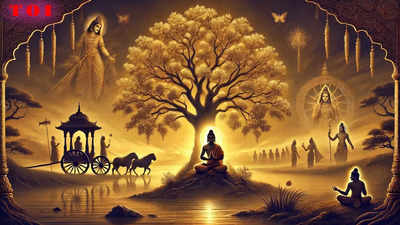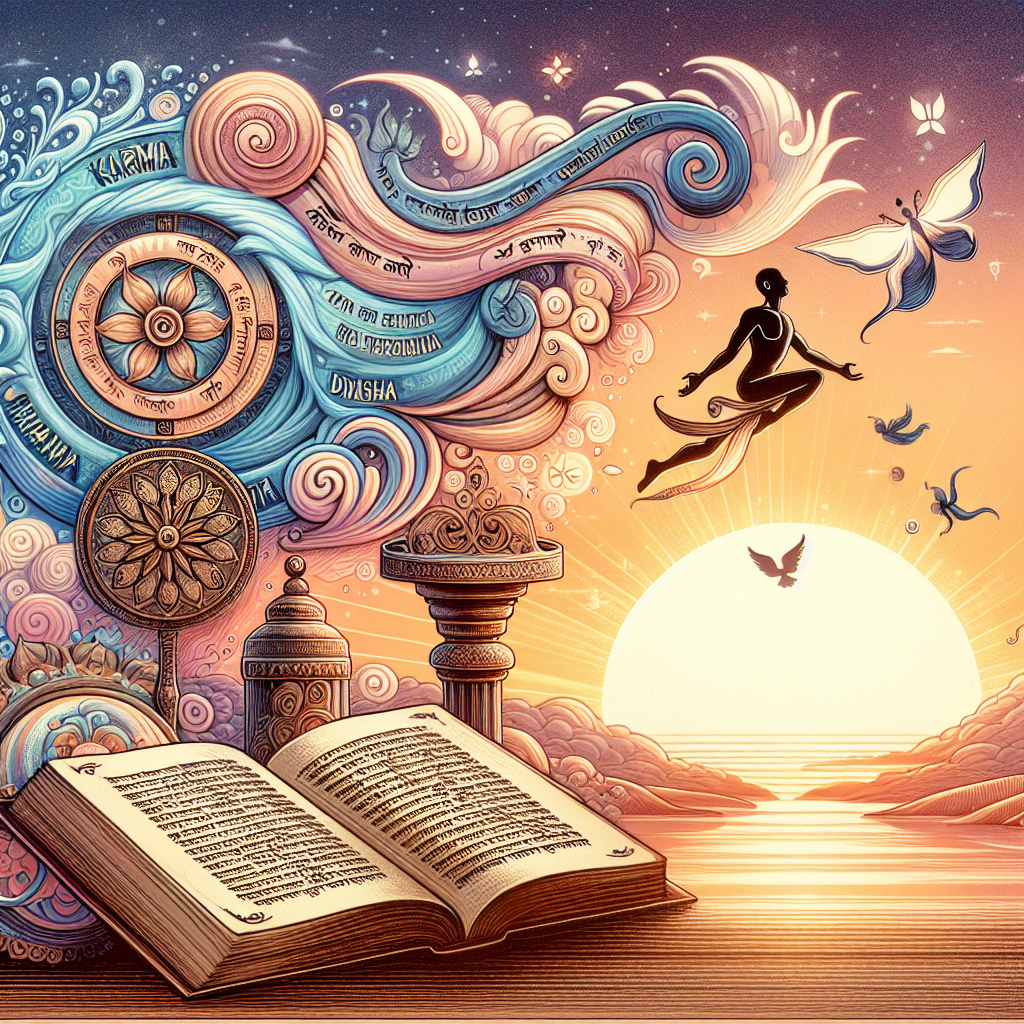
tea Bhagavad Gitaone of the most revered scriptures of Hinduism, provides profound guidance on the ultimate purpose of life and the path to self-realization. Central to its teachings are the concepts of Karma (action), Dharma (duty or righteousness), and Moksha (liberation). These three principles offer a framework for leading a meaningful and spiritually fulfilling life. Let’s explore what the Gita has to say about these important ideas.
Karma: The Principle of Action
In the Gita, Karma refers to the actions we take, both physical and mental, and their inevitable consequences. Lord Krishna emphasizes the importance of performing duties selflessly, without attachment to results. This is famously expressed in the verse:
“Karmanye vadhikaraste ma phaleshu kadachana”
(“You have a right to perform your duties, but not to their consequences.”)
Krishna advises Arjuna, the protagonist, to focus on his responsibilities as a warrior without being attracted by personal gain or fear of failure. This philosophy of Nishkama Karma (selfless action) teaches that detachment from outcomes leads to inner peace and harmony. The Gita emphasizes that our actions, when done according to Dharma, contribute to the spiritual development and well-being of society.
Dharma: The Path of Righteousness
Dharma in the Gita is more than a set of rules; it is the moral compass that guides an individual’s actions. Krishna explains that following one’s Dharma is essential for maintaining order and harmony in the world. For Arjuna, his Dharma as a warrior is to protect righteousness by fighting the Kurukshetra war, even when faced with personal conflicts.
The Gita recognizes that Dharma can vary based on a person’s role, responsibility, and status, a concept known as Svadharma (personal duty). By fulfilling one’s Dharma selflessly and without ego, one aligns with the cosmic order, contributing to the greater good. Deviation from Dharma, on the other hand, leads to chaos and spiritual regression.
Moksha: The Ultimate Liberation
The real purpose of life, according to the Gita, is Mokshaliberation from the cycle of birth and death (samsara). Moksha is attained when the soul realizes its oneness with the eternal divine consciousness, or Brahman. Krishna taught that liberation is not achieved by renunciation of the world but by selfless action, devotion, and wisdom.
Three main paths to Moksha are outlined in the Gita:
- Karma Yoga (Path of Action): Performs duties without attachment to results.
- Bhakti Yoga (Path of Devotion): Surrender to God with unwavering faith and love.
- Jnana Yoga (Path of Knowledge): Gaining insight into the nature of oneself and the universe through spiritual wisdom.
Krishna assures Arjuna that any sincere effort on these paths leads to spiritual progress and, ultimately, liberation.
Relationship of Karma, Dharma, and Moksha
The Bhagavad Gita weaves Karma, Dharma, and Moksha into a coherent philosophy. It teaches that by performing one’s Karma in accordance with Dharma and focusing on spiritual growth, one approaches Moksha. These principles are not separate; they form an integrated approach to living a life of purpose, integrity, and transcendence.
In a world often marked by uncertainty and disruption, the teachings of the Gita remain timeless. They encourage individuals to act responsibly, uphold righteousness, and strive for spiritual liberation.
Conclusion
The wisdom of the Bhagavad Gita offers valuable lessons for navigating life’s challenges. By understanding and applying the principles of Karma, Dharma, and Moksha, one can lead a life that is both meaningful and spiritually enriching. As Krishna told Arjuna:
“Abandon all kinds of duties and surrender to Me. I will save you from all sinful reactions; do not be afraid.” (Gita, 18.66)
This assurance emphasizes the real message of the Gita: through faith, right action, and devotion, one can transcend worldly fetters and attain eternal peace.
Selfless action(s)Moksha,Karma,Dharma,Bhagavad Gita , It looks like you might want to create a prompt for a specific task or topic. Could you provide more details on what type of prompt you’re looking for? It could be for writing, brainstorming, art, or something else entirely!, #Karma #Dharma #Moksha #Insights #Bhagavad #Gita,





